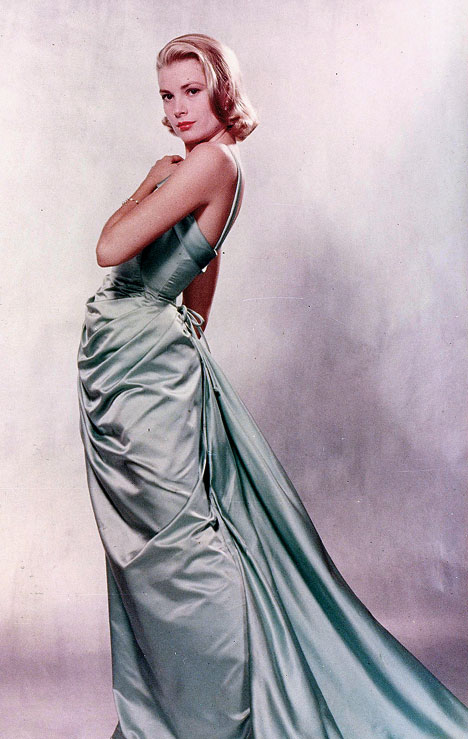
For those who ask the question, "Aren't you a civil rights leader?" and thereby mean to exclude me from the movement for peace, I have this further answer. In 1957, when a group of us formed the Southern Christian Leadership Conference, we chose as our motto: "To save the soul of America." We were convinced that we could not limit our vision to certain rights for black people, but instead affirmed the conviction that America would never be free or saved from itself until the descendants of its slaves were loosed completely from the shackles they still wear. In a way we were agreeing with Langston Hughes, that black bard of Harlem, who had written earlier:
O, yes, I say it plain,
America never was America to me,
And yet I swear this oath?
America will be!
-- Martin Luther King, Jr. "Beyond Vietnam"
If you are a Christian, Jesus Christ of the New Testament is very specific about what he wants you to do: follow him.
And just like you'd expect a Messiah would, he has a lot of "followers," must most of them don't go the whole way. They try to be good people. They find their own ways to serve God and their communities, but martyrdom is something most Western-based Christians haven't put in a lot of stock. It's easier to worship, donate, pray on it or ignore it, then ask for forgiveness for the ignoring. After all, you simply want to live your life, but if you've read the New Testament, so did Jesus, and he went through with the whole crucifixion anyway.
 This isn't to compare slain Civil Rights Activist Martin Luther King Jr. with "the King of Kings," but to explain what it means to do the right thing even when it would be easier on you and everyone you love to just be another garden variety Baptist minister who tells you to be a good citizen and pray for your salvation.
This isn't to compare slain Civil Rights Activist Martin Luther King Jr. with "the King of Kings," but to explain what it means to do the right thing even when it would be easier on you and everyone you love to just be another garden variety Baptist minister who tells you to be a good citizen and pray for your salvation.
Martin Luther King, Jr. was not an overwhelming popular man when he was alive. Very few martyrs of any faith are. People tend to forget that in the afterglow of his death and the positive results rendered by his labors, that he was questioned, harassed, ridiculed and even called crazy by other black people. Years ago for The Bakersfield Californian I interviewed a member of the local chapter of the NAACP, now a minister, who said he thought King was a mad man. Young, angry and living in the segregated South, he was sure that the only way out of American Apartheid was bullets. But his anger subsided and he joined King's movement anyway -- joining the NAACP and working to register people to vote. It wasn't until he was an adult and King was gone that he could finally see the enormity of the work. But King was loved by the few who could see where he was taking us. He simply angered and befuddled the rest.
From the politicians who openly referred to him as "Martin Luther Coon" on television, to J. Edgar Hoover's fevered sex dream obsessions with getting King to commit suicide over infidelities, to getting beaten, jailed and beaten again every time he stood up. To his children and wife being threatened. To the families of those who followed him being threatened. To the many people who died for the privilege of being treated as a human being.
But when King was killed in 1968 he'd moved from just being the de facto leader of the Civil Rights Movement to a pivotal figure in the human rights movement, protesting against the war in Vietnam and joining in the call for worker's rights. He died supporting a sanitation worker's strike. This did not set well with many American blacks who wanted him to focus solely on African American issues, but if you claim to be a servant of the people, of the underrepresented, of the downtrodden, and you happen to be a follower of Christ, as King was as a Baptist minister, what was his choice? Nothing he did was easy, but he could have spared himself some grief by staying out of the larger human rights movement, but he didn't. Because what he did, as unpopular as it was, was the right thing.
 Sometimes the hardest thing and the right thing are the same, and this is the story of every martyr. He had a choice. He could have lived a quiet life and lived to an old age. But if not him, who? And if not now, when? He asked himself those questions, and when the elders called on him to lead that flock in Montgomery, Ala. he rose to the task that would eventually lead to a brutish, short life. One where he would not see his children grow up. One where he would never see what his hard work had wrought.
Sometimes the hardest thing and the right thing are the same, and this is the story of every martyr. He had a choice. He could have lived a quiet life and lived to an old age. But if not him, who? And if not now, when? He asked himself those questions, and when the elders called on him to lead that flock in Montgomery, Ala. he rose to the task that would eventually lead to a brutish, short life. One where he would not see his children grow up. One where he would never see what his hard work had wrought.
I am not one who sees King as a saint. He was a human being with all the good and bad that comes with humanity. If you assume he was a saint it makes what he did seem unobtainable and impossible, something only a superhero could accomplish and soon, we are defeated, waiting on another superhero to save us.
But he wasn't a being of superiority. It took someone with the courage, patience and tenacity to do it. But it was not some Christ-like eunuch who did it. It was a man with flaws and dreams and ambition and I'm almost positive he did not set out in life at age 15, when he attended Morehouse College, knowing he would be dead at 39.

A lot of people have made the comparisons between King and President-Elect Barack Obama since Obama won Iowa. While I consider myself an admirer of both men, I truly wish people wouldn't put them in the same category. In many ways, it's unfair to Obama, who deserves his own accolades for what he achieved in a post-Civil Rights Era and diminishes the adversity those in the movement faced to pave the road for this achievement.

Both King and Obama are from different times with different struggles under different circumstances. Other than they are both black, male family men and racial pioneers, that's were all similarities end. Obama is a politician, beholding and serving the people through government. King was a minister, who was beholding to the community, but operated under an entirely different set of rules, one where breaking the rules was often the only option.
Obama, like me and many of you reading this blog, is the benefactor of King and other civil rights workers' efforts. We enjoy the fruits Medgar Evers never tasted. We attended the colleges Emitt Till, Addie Mae Collins, Carol Denise McNair, and Cynthia Diane Wesley never visited. We had the families and children Michael Schwerner, Andrew Goodman and James Chaney never had. Where Obama received protection from the Secret Service earlier than any other presidential contender in history, all King had was his most loyal and trusted friends and followers.
No matter how you feel about them today, Ralph Abernathy, Jesse Jackson, Hosea Williams, Andrew Young and a few others were King's friends, fellow activists, supporters and security. They were the last and only line of defense when everyone from white supremacists to the FBI wanted the man dead and any of them could have died that day on the balcony of the Lorraine.
But James Earl Ray was an apparent good shot.
His death spelled the end of the movement. It's been documented that King's disciples fought each other constantly, disagreed on tactics and ideas, and in the end, while they were all once willing to serve and die for one man, they wouldn't do it for one another, and went their separate ways. With Jackson, later becoming the most influential of those who were there until the end.
Everyone adores Martin now, now that he can't call any of us on our slacking, on our defeatism, on our hypocrisy. Matin Luther King, Jr. can't call you out in a speech anymore and tell you to "follow him." He can't make a wealthy individual depart with his or her change to bail poor black teenagers who marched out of jail. He can't make you turn the mirror onto your soul and see the cynicism that lies in your heart. He can't make you be both rational and irrational with fear, hope and anger and still take this work seriously.
Not anymore. And he's not there to do it for Obama either. The President-Elect will have to find his own mirror to look into his soul to find the way.
And we are not guaranteed to always like what our president will see in his mirror. And it is almost assured that there will be times when we will be angered, disappointed or unhappy. After all, King was an antagonist to the government, only beholding to the black and the poor. Obama will be the government, elected as a politician, not an activist. We are a minority that has struggled with government. How does Obama's presidency change that fight? How does that change expectations? How will that change attitudes or tactics?
I joke with my parents that in a year to six months for many the high will have worn off and the Obama will face what everyone who has to make life altering decisions has to face -- harsh criticism and derision. Already guaranteed a spot in history, but not spared the grief that comes with it, there will be many who will question what Obama can or will do for black Americans. And if people could question King's motives, when he lived, breathed and died for the movement, Obama is hardly above the law.
It's important to remember, despite the beautiful afterglow of "King was right," King was not a simple, benevolent figure. He was not one-dimensional. He was not a saint. He was a human, like you and I, who chose to push himself to his ultimate potential and died for something bigger than himself.
What path Obama blazes will be out of the shadow of King's effort. The work he leaves behind must stand on its own. And may he continue to choose the road less traveled even if we all question if he's going the right way.
As what every person who reaches this pinnacle must realize, this is all much bigger than himself.













0 comments:
Post a Comment